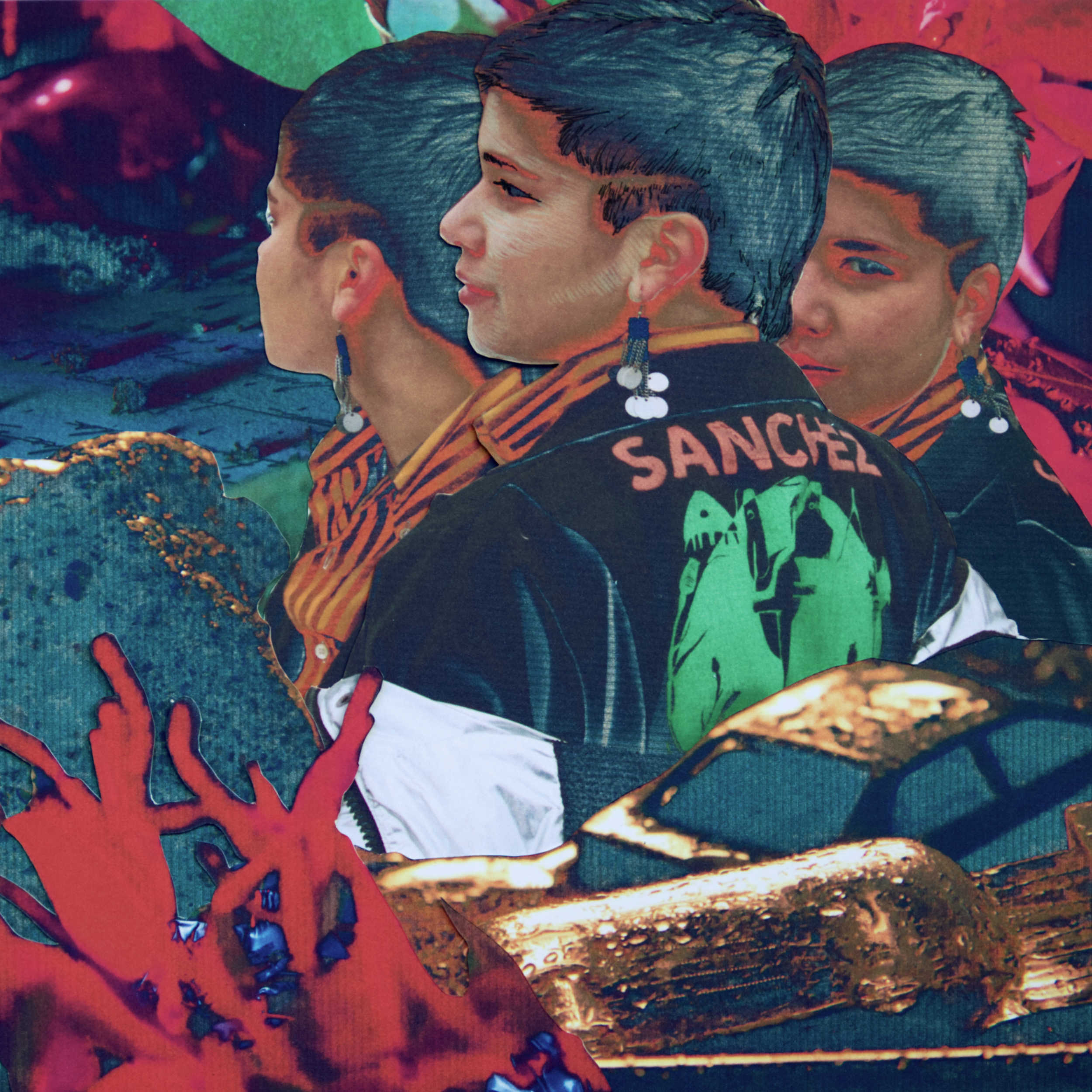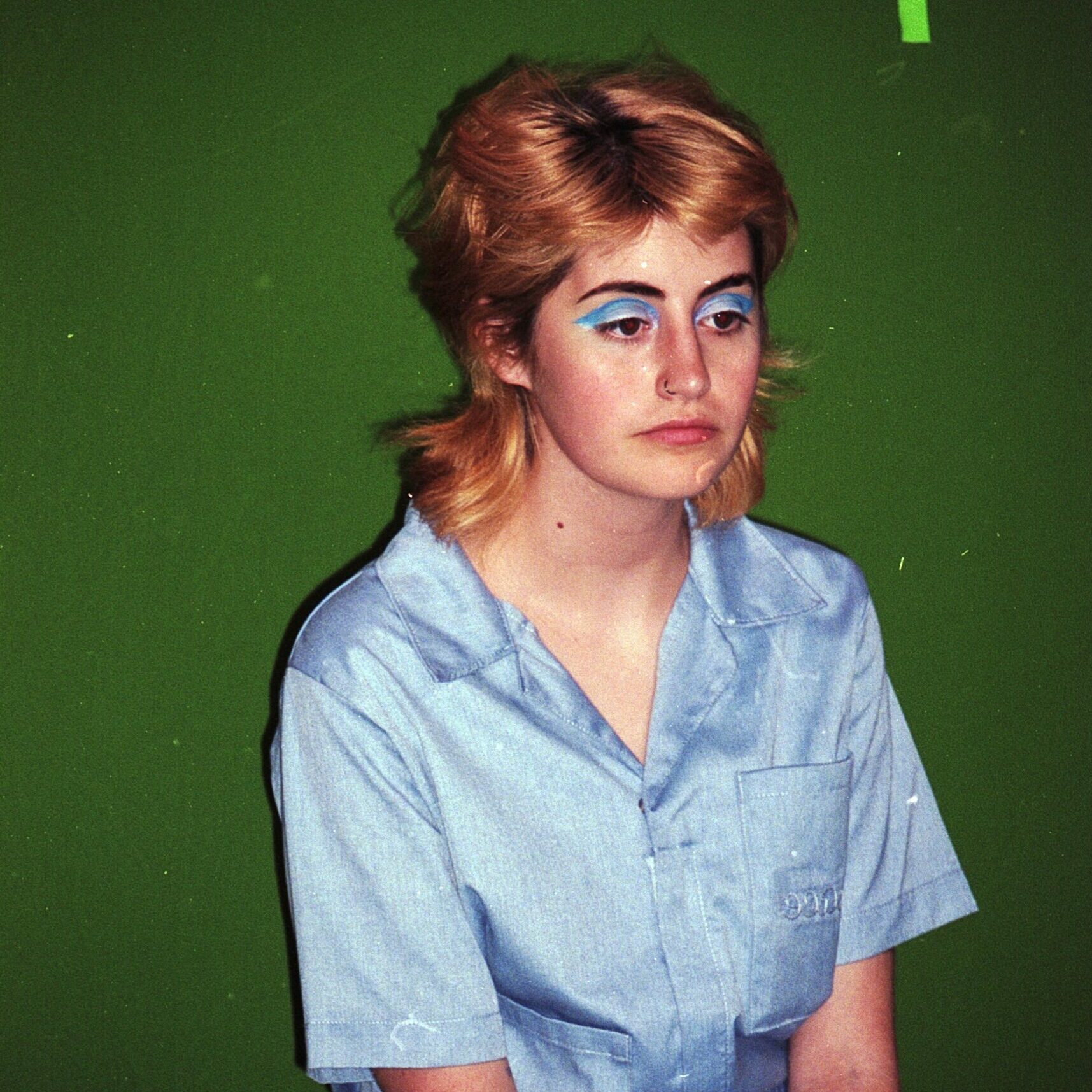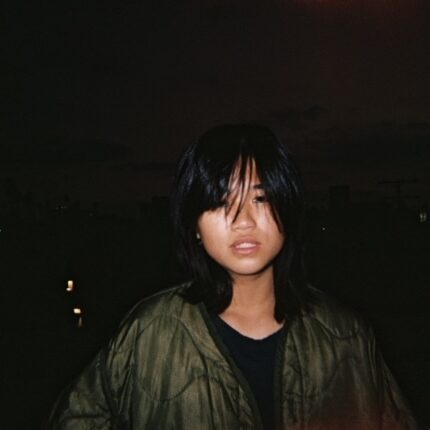I’m fascinated by the transition that the album, as an artform, is continually undergoing. No longer tied to physical form, an album can be any length, hosted virtually anywhere.
No longer tied to established record labels to produce, an album can contain songs of any style, genre, instrumentation, and vibe all at the same time. How does one curate an album? There’s no wrong answer, but which one is right for any given piece at any given time?
I found myself asking these questions after diving into Ox. Sanchez’s debut album Anxiety Dreams. It’s relatively short– eight tracks totalling just over a half an hour– and its palette is concentrated on vocals, danceable electronics, and the occasional field recording. Each track has a different approach to composition, along with the themes of anxiety and wakefulness.

Ox. Sanchez is an established multidisciplinarian. With a degree in painting from the Rhode Island School of Design, their overall creative practice is expansive and intricately interwoven. Anxiety Dreams is accompanied by a collage series, which synaesthetically translates some of the themes of the album into visuals. In these images, we see Sanchez themself digitally modified, duplicated, overlapping their own lyrics and environment.
I especially appreciate these collages as an extension of the album itself; the myriad art that came on and in physical record sleeves has morphed into online images which often fade away in the ephemeral timeline. The Anxiety Dreams art lives on a website dedicated to the album. Carving out unique digital spaces for each aspect of one’s work can be tricky, and the way Sanchez has done it is not any less of an experience than opening up a CD case and pawing through the booklet for more context.
And then there’s the transformative nature of the music itself. Opener “Always Early” leans furthest toward the “pop” end of electropop, with soaring vocals and bouncy synths. Reversed lyrics and brash filler pads foreshadow the more dense trajectory that the album will go on to take.
Moving into “In the Wall’d Place” and “Anxiety Dreams,” composition and text setting tools come to the forefront; vocals cascade down and up like eyes scanning a massive, unscaleable wall; nasaly pads give way to dissociative stretches of pseudo-calm.
The emotional and harmonic arc of this album is deft. The electronic material grows more complex which each passing song. The vocals remain immaculate throughout, with two and three part harmonies sailing over the noisy synthetic landscape, keeping us connected to Sanchez’s (virtual) reality.
“...vocals cascade down and up like eyes scanning a massive, unscaleable wall; nasaly pads give way to dissociative stretches of pseudo-calm. The emotional and harmonic arc of this album is deft.”
There are a few long instrumental breaks, which allow us to sink deep into the plush bedroom carpet and dream– not only with anxiety, but dreaming toward a time beyond it, to a time of inner strength and peaceful sleep.
The last two tracks are a lesson in emotionally effective denouement. After delving into the instrumental void in “To Expect Nothing” and “Paper Tiger,” Sanchez’s voice returns for “Echo Out Five Years.” The transition into the song is gentle, providing space both to digest and prepare for the end. Lyrically the song is a testament to a whole era of life, with verses and choruses continually transforming and wrapping around each other like old friends who meet again after, presumably, five years distant.
“"8-Bit Suburbia" closes the album with an instrumental journey to a new place, a bus ride reflecting on all that has been seen and heard.”
8-Bit Suburbia closes the album with an instrumental journey to a new place, a bus ride reflecting on all that has been seen and heard. There are shadows of the same techniques used to imply anxiety in earlier tunes– ringing bells, off-kilter beats, incessant hi-hats– but there is a forward-marching pace to them. It’s not so much a conclusion as it is a salutation, an outro that suggests more to come. I found myself repeating the lyrics of the previous track in my mind all the way through 8-Bit Suburbia and long after the album was over.
Ox. Sanchez has crafted a concise and sincere album which is not only beautiful in lyric and composition, but thinks toward the future of how albums, and music, can break apart conventions and surpass our expectations.
Singer Joy is a queer musician, writer, and polytheist living in Providence, RI. She makes flowery anarchist theatre with her company Water House Collective, and is also a professional composer for the stage, a zinester, an erotica artist, and a Gemini.


